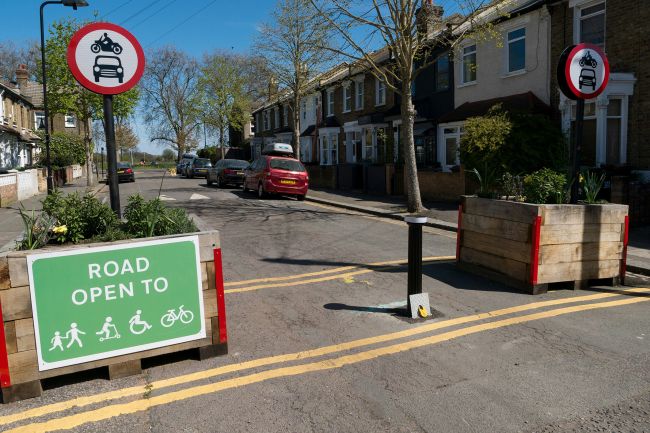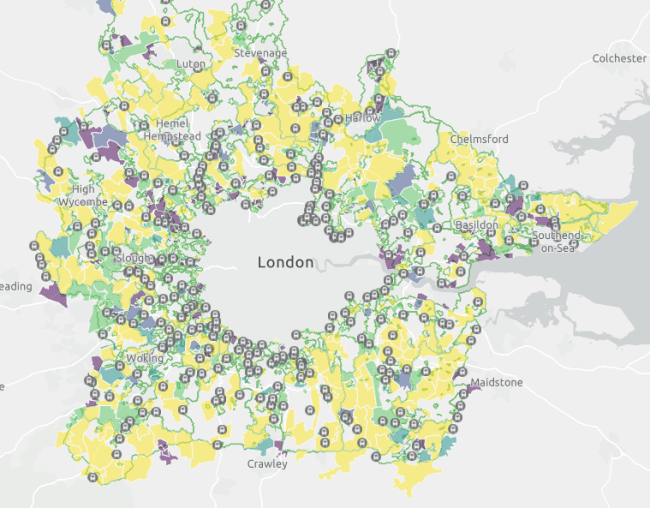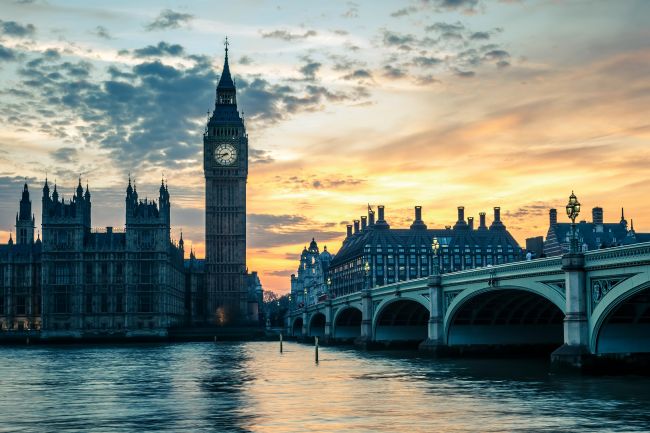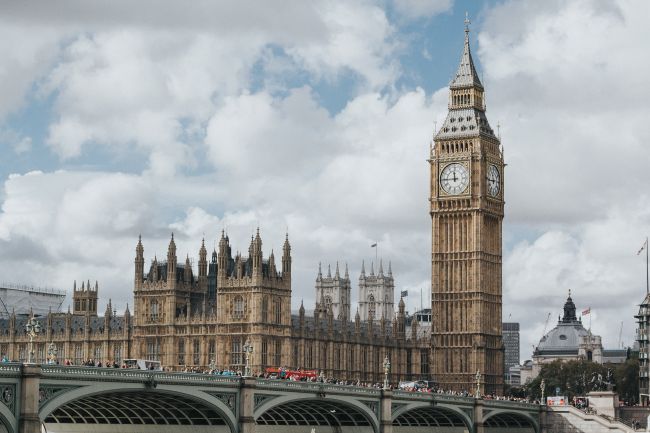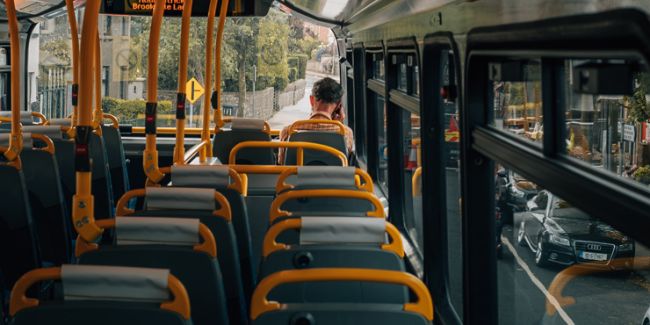Dockless bike share: a regulatory grey area
New mobility options could support London’s ambitions for more sustainable travel but regulation is outdated and not fit for purpose.

In summer 2017, dockless bike share hit London’s streets. Unlike the city’s existing system, the new schemes did not have designated stations, known as docks, to leave and pick up bicycles from. Instead, in theory, the new dockless bikes could be left and picked up anywhere, providing a key advantage over the established docked system. The promise was to offer bike share beyond Central London – to which the docked bike hire was geographically limited.
However, hiccups cropped up early on. London’s first dockless bike share service oBike was launched without the cooperation of London’s citywide transport authority responsible for London’s arterial roads, Transport for London (TfL), or any of the city’s 32 boroughs and the City of London which are responsible for 95% of the capital’s streets. An influx of dockless bike hire in London followed: Irish Urbo, and Chinese ofo, Mobike and more recently American Lime trailed oBike. The sudden influx of dockless bike share services exposed the outdated levers that local government had to manage their presence on London’s streets
Under current legislation, operators do not require consent or a licence from the borough or TfL to operate, because the operator places no infrastructure on the roads. The only lever left to boroughs to manage the influx was to remove the bikes on the grounds of causing nuisance, obstruction or danger. The legislation to do this dates back as far as the Highways Act 1980 and it is not fit to address the issue.
In the absence of suitable legislations, the recommendation by London Councils, the body representing London’s boroughs, was to use legislation regarding waste, specifically the Environmental Protections Act 1990 by classifying the parked or abandoned bikes as waste. Alternatively, Public Spare Protection Orders under the AntiSocial Behaviour and Policy Act 2014 to tackle anti-social behaviour associated with dockless bike share. London Councils also advised boroughs to use street trading powers under the London Local Authorities Act 1990 to manage the operations of dockless bike share on their streets. Yet, even these ill-suited levers fall short at giving boroughs and TfL the power to effectively manage usage of road and public space. Legal advice given to the City of London, is that dockless bike share operations do not fall under the definition of street trading and that it is doubtful that definitions of ‘waste’ or ‘litter’ in legislation apply.
In short, London’s citywide transport authority and its boroughs lack the powers to licence and regulate dockless bike share in the capital. To provide some guidance, TfL developed a Code of Practice setting out how it wants and expects dockless bike share schemes to operate. Also, CoMoUK, a charitable organisation which supports the development of shared transport in the UK, provides an accreditation scheme for bike share operators, which can be used to maintain standards within a procurement exercise, noting that most London boroughs have not procured dockless bike share to date, with a Memorandum of Understanding being one tool to manage the relationship between operator and borough. However, any arrangement the dockless share schemes abide by is currently voluntary. Mirroring concerns across the globe in cities from Beijing to San Francisco, dockless bike share operations in London are perceived as adding to street clutter and pressure for bike parking.
Some dockless bike share operators in London have shown a willingness to engage positively with the boroughs and TfL, and adhere to the Code of Practice. However, both entities have their hands tied without effective powers to regulate dockless bike share operations in their jurisdiction.
’A new light-touch London-wide regulatory regime could realise these benefits [of dockless bike share] while minimising risks concluded a recent report on the future of transport by the London Assembly, London’s city council and the scrutiny body of the Mayor of London. In another recent report on the state of cycling infrastructure in the capital, the London Assembly puts forward the case for TfL to ’more actively shape the market’ so that the benefits of dockless bike share can be reaped: ‘Dockless bike hire schemes have the potential to increase and widen cycle ridership in London. But TfL needs to manage them strategically to ensure their benefits are maximised – and that London avoids the problems they have caused in other cities’.
In response to the lack of powers, TfL and London Councils have proposed a London-wide bylaw, expected in early to mid-2019, to regulate dockless bike share in the capital. The bylaw is expected to effectively make it an offence to operate a bike share scheme in London without a licence. London’s boroughs would then have the powers to grant dockless bike share operators consent to operate on their streets given local assessment and abiding to set conditions.
London-wide regulation, instead of for each borough, is sought because trips on dockless bike share often cross borough boundaries. So far dockless bike share operators have been working at the borough level. This has limited the trips for which dockless bikes are a feasible option – limiting the attractiveness of the service and undermining potential mode shift to cycling. The same logic also supports a national regulatory framework, which had been discussed by central government in early 2018 but has since stalled. Without overarching regulation, the market remains difficult for dockless bike operators to succeed and thus they have repeatedly expressed their support for a London-wide or national regulatory framework. This would have made it easier for operators to launch and expand in London and other cities across the country. The lack of ability to operate at scale and across borough boundaries may be one reason for a recent retreat from London by some operators, although new entrants featuring shared .ebikes are starting to emerge.
Giving local government and transport authorities the right tools to manage dockless bike share to align private sector operations with long-term transport strategies and visions, with overarching policies such as mode shift to sustainable transport and road safety, is important. However, it is also important not to weigh down potential mobility innovations with regulations and restrictions. It is also important to take a step back and reflect on whether regulation and restrictions on “conventional” transport modes are sufficient and supportive of the transport visions for our cities. In the context of London, the Mayor of London has set out his headline objective in his transport strategy: for four out of five trips to be by public transport or active travel. Currently, over a third of trips in Greater London are completed by car.
As we reflect on whether the current regulatory framework is fit of purpose for dockless bike share and the new mobility options on the horizon, it begs the question: do we have the right tools to discourage private motorised travel and encourage sustainable modes?
